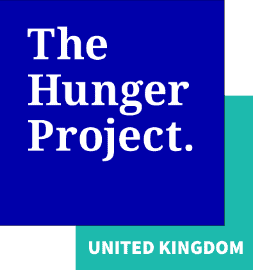16 October, 2012
 World Food Day 2012: Focus on Cooperatives
World Food Day 2012: Focus on Cooperatives
The theme for this year’s World Food Day (October 16) is “Agricultural cooperatives ― key to feeding the world,” and it coincides with the UN’s recognition of 2012 as the “International Year of Cooperatives.” Cooperatives play an important role in improving food security and contributing to the eradication of hunger, either directly or through broader poverty alleviation activities.
According to the United Nations Food and Agriculture Organization (FAO), a cooperative is an association of women and men who come together to form a jointly owned, democratically controlled businesses where generating a profit is only part of the story – they also help their members achieve shared social, cultural and economic aspirations. One billion individuals are members of cooperatives worldwide. Group activities of profit-sharing, cost-saving, risk-sharing and income-generation provide members of cooperatives with better bargaining power in the marketplace and a collective voice in negotiating with policymakers on issues that affect their lives. Cooperatives provide over 100 million jobs around the world, 20 percent more than multinational businesses.
 Throughout THP’s programmes in Africa, South Asia and Latin America, we empower our village partners to create and strengthen cooperatives to improve their lives and those of their families and communities. Organised groups provide countless advantages to community development. Group meetings become forums where members can voice and address common concerns and make decisions to take collective action on issues from education to clean water to family planning and business management.
Throughout THP’s programmes in Africa, South Asia and Latin America, we empower our village partners to create and strengthen cooperatives to improve their lives and those of their families and communities. Organised groups provide countless advantages to community development. Group meetings become forums where members can voice and address common concerns and make decisions to take collective action on issues from education to clean water to family planning and business management.
According to FAO, research and experience has shown that those acting collectively in producer organisations and cooperatives, as opposed to small farmers acting alone, are better able to mitigate the negative effects of food and other crises. With another world food crisis looming, it is extremely important to support and invest in these social institutions as a means for communities to end their own hunger and poverty.
On this World Food Day, join The Hunger Project in supporting cooperatives around the world. Invest now.
More about The Hunger Project’s work with cooperatives
- In Bangladesh and Latin America, THP mobilises animators to create cooperatives, also sometimes called self-help groups, to begin businesses from poultry rearing to weaving to fish farming. THP provides training in income-generating skills and works to support the cooperatives in expanding their organisational capacity with training in areas such as administrative skills, self-management, merchandising, alliances and community action. In Bangladesh last year, THP’s village partners formed more than 650 such self-help groups. Learn how Juana joined with other women to create a business raising guinea pigs in Peru.
- In Africa, THP supports farmers’ associations, also functioning as cooperatives, with technical support, demonstration farms, distribution of improved seeds, and monitoring of their work in the fields. Read the story of Silva Joaquin Ngovene, chair of his agricultural cooperative, who explains how THP’s support has enabled his group to produce not only food for their families but also food for other Mozambicans.
- To qualify for an initial loan through our Microfinance Programme in Africa, our village partners must be organised into either solidarity groups or cooperatives. They then elect their own leaders, set their own processes and determine a group savings requirement as well as discuss problems and provide mutual support. Read how community leader Agnes Adjei manages her active and vibrant microfinance group.
- The ultimate objective of the Microfinance Programme in Africa is to assist village partners in establishing their own government-recognised rural bank or also known as a savings and credit cooperative (SACCO). The creation of this majority women-led and member-owned institution will ensure sustainable access to savings and credit facilities for the entire epicentre community. Read about Gudatu SACCO’s inauguration in Ethiopia.
Links
- Empower thousands of cooperatives in Africa, South Asia and Latin America: Give Now!
- FAO’s World Food Day 2012 page
- October 11 is the first International Day of the Girl. Find out more.
- October 15 is International Day of Rural Women. Read more about THP’s work to empower rural women.
- October 17 is International Day for the Eradication of Poverty. Read more about the links between hunger and poverty and the work THP does to combat poverty worldwide.
